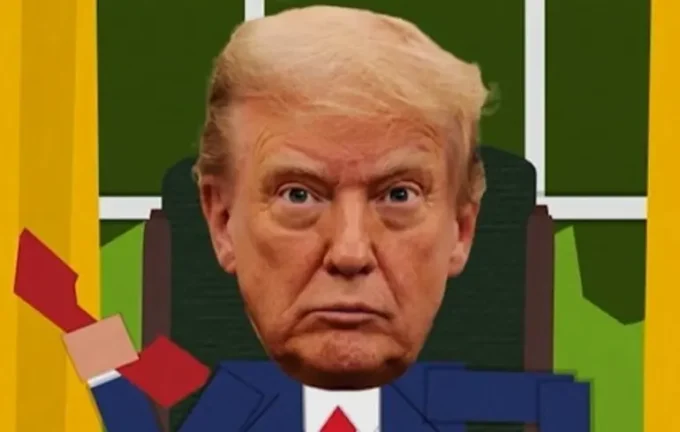Trump Launches New Media “War”: Rising Criticism and Censorship as Central Elements of Political Confrontation

The political landscape of the United States has once again become tense and contentious, as President Donald Trump’s administration intensifies its battle against American media and entertainment figures. This trend, which has taken on a sharper edge following recent incidents, highlights how sensitive the current leadership has become to critical voices. At the center of the controversy are not only journalists and editors but also creators of satirical shows who face active opposition. Notably, a scandal erupted surrounding the popular animated series South Park, renowned talk show hosts Steven Colbert and Joy Behar — and even the media company Paramount, which owns several major media assets. Everything started after the release of the 27th season of South Park, returning after a two-year hiatus. In this new episode, the U.S. president is depicted in a provocative and somewhat humiliating manner — fully naked in bed with Satan, with his face superimposed on an animated body through a real photo. The depiction of “Trump’s genitals” appears five times throughout the episode, prompting internal debates among the creators and the studio. The Trump administration, including White House spokesperson Taylor Rhoades, retaliated by defending the president, dismissing the series as “third-rate” and claiming that “Trump has fulfilled more promises in six months than any other president in history,” and that no show can “distract from his successful streak.” Rhoades suggested that South Park is “hanging by a thread,” resorting to provocative antics in a desperate effort to attract attention. Meanwhile, series co-creator Trey Parker commented at the San Diego Comic-Con, saying, “We’re sorry,” with a blank expression and a long pause. During a panel discussion, Parker explained that Paramount representatives demanded that the depiction of a penis be blurred, but he refused, believing that artistic expression should not be censored—even if it’s offensive. Another heated topic concerns the financial and political conflict surrounding media giant Paramount. One episode ridicules an arrangement between Paramount and Trump involving a $16 million settlement to end a lawsuit related to the “60 Minutes” program on CBS. In this context, Trump accused journalists of selectively editing his interview to favor or disfavor Vice President Kamala Harris. The issue drew critique from Stephen Colbert, host of The Late Show, who called Trump’s payment of the settlement “a bribe of sorts.” Shortly after, it was announced that Colbert’s show would end next spring, a decision linked to financial and internal reasons. Officially, CBS stated that the cancellation was “solely based on financial considerations,” but many in media circles suspected political motives — especially as Paramount is preparing for a merger with Skydance Media valued at over $8 billion, a deal under the supervision of the Trump-controlled Federal Communications Commission. Another target of Trump’s criticism was Joy Behar, a host of The View, who during her show claimed that Obama’s leadership was aimed at orchestrating a coup against Trump: “It’s all about envy — he’s jealous of Obama because Obama is slim, smart, handsome, happily married, and can sing Ella Green’s ‘Let’s Stay Together’ better than Green himself. Trump can’t stand that.” In response, the White House spokesperson labeled Behar as a “failure suffering from Trump’s severe psychological syndrome,” implying her ratings have plummeted, and her comments only worsen her situation. Trump, meanwhile, openly celebrates the demise of Colbert’s show and the diminished impact of critical voices, using social media to mock and denigrate his opponents. The series of recent events, from sharp comments to the cancellation of programs, exemplifies a growing intolerance of critics characteristic of the current regime. The ongoing “battle” against what the White House calls “Trump’s madness syndrome” remains a key concern, raising questions about the future of free speech and media independence in America.

